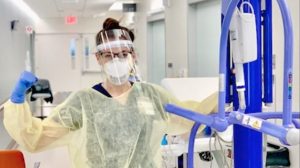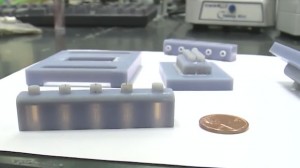NEW YORK (Reuters Health) – Antiretroviral therapy does not adversely affect lung function in HIV-infected patients and may actually have a beneficial effect, according to study findings presented Monday at the Interscience Conference on Antimicrobial Agents and Chemotherapy in San Francisco.
“No recent longitudinal studies on lung function in HIV patients have, to our knowledge, been published,” lead researcher Dr. Ulrik Kristoffersen, from Rigshospitalet, Copenhagen, told Reuters Health.
“Over 4.5 years of follow-up of 63 HIV patients, pulmonary function seemed to improve,” he noted. “The vast majority of the patients received antiretroviral treatment throughout the study. The improvements were especially observed in the non-smoking patients.”
At the start of the study in 2001, lung function testing was performed on all the subjects, of whom about half were smokers.
Two principle lung abnormalities were seen at baseline: impaired gas exchange from the alveoli to the blood and an increase in the residual volume of the lung. The former, the researchers note, suggests pulmonary inflammation, while the latter indicates lung tissue destruction.
When the lung function tests were repeated at the end of the study, gas exchange had normalized in non-smokers. Lesser improvements were seen in smokers.
As for residual lung volume, non-smokers showed normalization of this parameter as well. In smokers, however, the residual volume was further increased, indicating ongoing lung damage.
“Antiretroviral therapy seems not to negatively affect lung function in HIV patients but seems instead to be able to reverse abnormal lung parameters initially observed,” Dr. Kristoffersen said. “Hence, there is no necessity for routine monitoring of lung function in HIV patients.”
Moving forward, he said that future longitudinal studies looking at antiretroviral therapy in treatment-na




